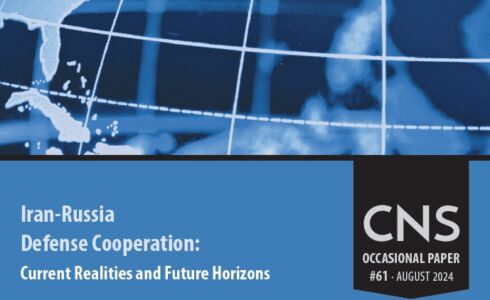
Even with Trump’s support, Moscow’s disruptive impulses have their limits.

Hanna Notte represented CNS at the 2025 Munich Security Conference, which took place from 14-16 February.

CNS expert’s guest essay for The New York Times on the ousting of Bashar al-Assad.

Moscow’s ability to support its regional partner, Iran, is coming under increasing strain.

Ep.12: China’s Nuclear Modernization with Dr. Fiona Cunningham

The end of nuclear weapons testing is a significant nonproliferation success, yet concerns about its resumption persist.

There is no evidence suggesting that the Kremlin is prepared to engage in sincere negotiations regarding Ukraine.

Since Russia’s full-scale invasion of Ukraine in February 2022, the country’s defense relationship with Iran has deepened and widened considerably.